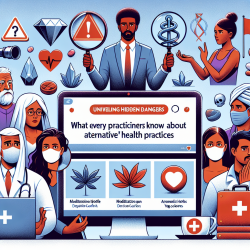Key Takeaways from the Research
The research highlights the importance of understanding human rights and legal frameworks to improve patient care and clinical practice. Here are some key points relevant to online therapy:
- Human Rights Frameworks: The German Basic Law (GBL) and the European Convention on Human Rights (ECHR) offer a comprehensive understanding of human rights that can be applied to therapy practices.
- Patient Autonomy: Emphasizing the right to self-determination and informed consent is crucial. This principle can be adapted to ensure that students and their guardians are fully informed and consent to therapy plans.
- Legal Safeguards: Understanding the legal obligations and protections can help therapists navigate complex situations, such as confidentiality and data protection, more effectively.
Practical Applications for Online Therapy
By integrating these legal insights, online therapy practitioners can improve their service delivery in several ways:
- Informed Consent: Ensure that all therapy sessions are conducted with informed consent from the student and their guardians. This involves clear communication about the therapy's goals, methods, and potential outcomes.
- Confidentiality: Maintain strict confidentiality standards in line with legal requirements to protect student information.
- Ethical Practices: Adhere to ethical guidelines that align with human rights principles, ensuring that the therapy provided respects the dignity and autonomy of each student.
Encouraging Further Research
Practitioners are encouraged to delve deeper into the legal aspects of therapy to continuously improve their practices. The intersection of law and therapy is a dynamic field that offers numerous opportunities for enhancing service quality and ensuring compliance with legal standards.
Conclusion
Integrating legal insights from the research article "Thinking like a Lawyer—Human Rights and Their Association with the Plastic Surgeon of Today" can significantly enhance online therapy practices. By focusing on human rights, patient autonomy, and legal safeguards, practitioners can provide more effective and ethically sound therapy services.
To read the original research paper, please follow this link: Thinking like a Lawyer—Human Rights and Their Association with the Plastic Surgeon of Today.










